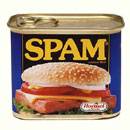Security company Marshal reports that their latest survey found 29% of respondents willing to admit that they have purchased something from a spam e-mail.

While that number seems pretty questionable, PCMag’s Appscout points to a related survey from Forrester in 2004 that found 20% of people say they have bought from spammers. In other words, if you believe these studies – it’s getting worse, not better.
Context
Marshal (no relation) says that global spam volumes are around 150 billion messages each day and have doubled for the year ending June 2008. We wrote in December about another study, also from a vendor in the anti-spam market, that concluded that 90 to 95% of all email is now spam.
“A common misconception is that ‘regular’ people don’t buy from spam. But, you have to consider the types of products people are buying,” Marshal’s Bradley Anstis wrote in the company’s release today. “It’s pirated software, knock-off watches, counterfeit designer goods, cheap drugs and prescription medicines, pornography and other adult material. The Internet provides convenience and a degree of anonymity to people who want to buy illegal or restricted goods. It is a black market and spam has become a conventional means of advertising to a willing audience of millions of people who are purchasing from spam.”
The announcement of the study concludes with these funny lines, from Anstis again: “The other way to look at this situation is from a spammer’s perspective. There are approximately 250 million people out there who are interested in these kinds of products and have made purchases from spam in the past. That’s equivalent to double the population of Japan mixed in with every other Internet user. As a spammer – how do you reach that market without knowing specifically who these people are and with the bare minimum of expense? Easy, send lots of emails to everyone.”
Has The Market Spoken?
If you buy Marshal’s numbers, and they have a vested interest in painting a large threat, perhaps the market has spoken. It sounds like people want spam, after all. What other e-commerce channel would 30% of respondents admit having bought something from? Doesn’t sound like something that needs to be illegal.
Of course these numbers should be taken with a giant grain of salt. The study was of just over 600 respondents who visited the Marshal website. The question they were asked appears to have been framed in a pretty presumptuous way. “What purchases have you made from spam?”
This author has never bought anything from spam. I swear.
The percentage of people who have clicked on a topical looking ad on a spam blog that showed up in search is probably even higher. The satisfaction with that spam is probably much higher than satisfaction with email spam.
Those of us who want to use online communication channels for serious purposes, and I don’t mean serious like S&M fantasies, may be forever forced to wade through a sea of people who are less discerning and the spammers who email us all in order to find them.

















